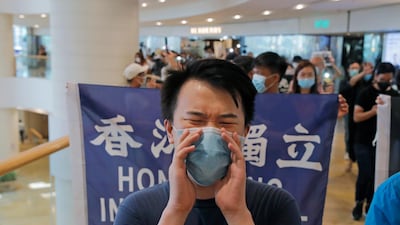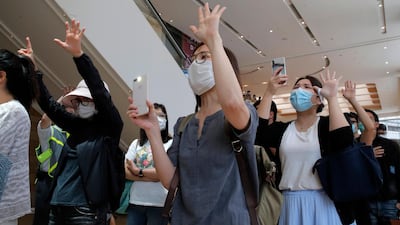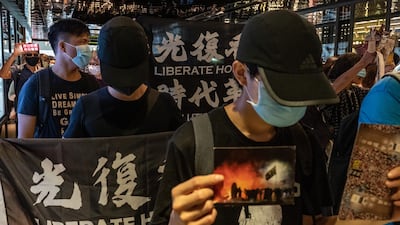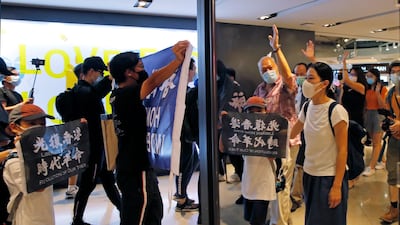The United States is looking to ban TikTok and other Chinese owned apps for fear that Beijing is using them to spy on Americans, Secretary of State Mike Pompeo has said.
His comments came the same day that the short-form video app said it was leaving Hong Kong over a new security bill that could force it to hand over user data to the Chinese government.
India has already barred the wildly popular TikTok app over citing national security and privacy concerns after a border incident left 20 soldiers dead while other countries are reportedly mulling similar measures.
Asked on Monday by Fox News's Laura Ingraham if the US should consider blocking the apps – "especially Tik Tok" – the country's top diplomat said the Trump administration was "taking this very seriously; we are certainly looking at it."
Mr Pompeo said the US had been working for a "long time" on the "problems" of Chinese technology in infrastructure and was "making real progress."
"With respect to Chinese apps on people's cell phones, I can assure you the United States will get this one right too," he said. "I don't want to get out in front of the president, but it's something we are looking at."
Mr Pompeo earlier lashed out at what he called China's "Orwellian" moves to censor activists, schools and libraries in Hong Kong under a sweeping new security law.
TikTok, along with Facebook, WhatsApp, Telegram, Google and Twitter have all bulked at the new bill that could force them to hand over user data to Beijing.
The social media companies say they are assessing implications of the security law, which prohibits what Beijing views as secessionist, subversive or terrorist activities or as foreign intervention in the city’s internal affairs. In the communist-ruled mainland, foreign social media platforms are blocked by China’s “Great Firewall.”
The new law also impacts schools, libraries and public gatherings.
TikTok, owned by the Chinese internet giant ByteDance, said it had decided to halt operations “in light of recent events.”
The app has sought to distance itself from its Chinese roots while striving for global appeal. It recently hired former Walt Disney executive Kevin Mayer to be its CEO.
The company has said all its data is stored in servers in the US and insisted it would not remove content even if asked to do so by the Chinese government.
Facebook and its messaging app WhatsApp said in separate statements Monday that they would freeze the review of government requests for user data in Hong Kong, “pending further assessment of the National Security Law, including formal human rights due diligence and consultations with international human rights experts.”
Hong Kong was convulsed with massive, sometimes violent anti-government protests for much of last year as the former British colony’s residents reacted to proposed extradition legislation, since withdrawn, that might have led to some suspects facing trial in mainland Chinese courts.
The new law criminalizes some pro-democracy slogans like the widely used “Liberate Hong Kong, revolution of our time,” which the Hong Kong government says has separatist connotations.
The fear is that it erodes the special freedoms of the semi-autonomous city, which has operated under a “one country, two systems” framework since China took control in 1997. That arrangement has allowed Hong Kong’s people freedoms not permitted in mainland China, such as public dissent and unrestricted internet access.
Though social platforms have yet to be blocked in Hong Kong, users have begun scrubbing their accounts and deleting pro-democracy posts out of fear of retribution. That retreat has extended to the streets: Many shops and stores that publicly stood in solidarity with protesters have removed the pro-democracy sticky notes and artwork that had adorned their walls.
Under implementation rules of Article 43 of the national security law, which give the city’s police force sweeping powers in enforcing the legislation, platforms, publishers and internet service providers may be ordered to take down any electronic message published that is “likely to constitute an offence endangering national security or is likely to cause the occurrence of an offence endangering national security.”
Service providers who do not comply with such requests could face fines of up to 100,000 Hong Kong dollars ($12,903) and receive jail terms of up to six months.
Individuals who post such messages may also be asked to remove the message, or face similar fines and a jail term of one year.









